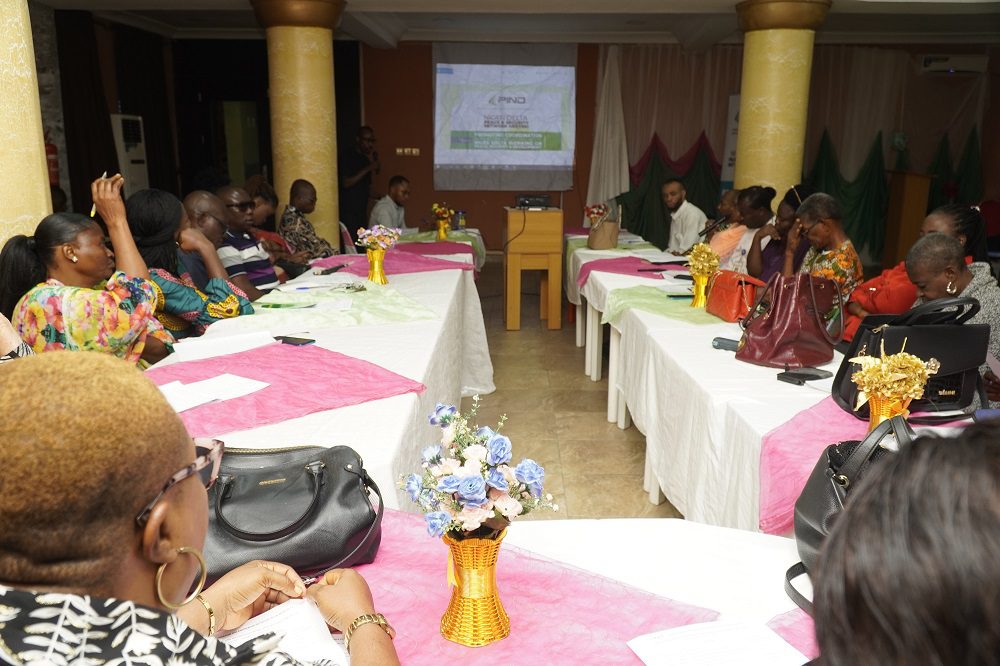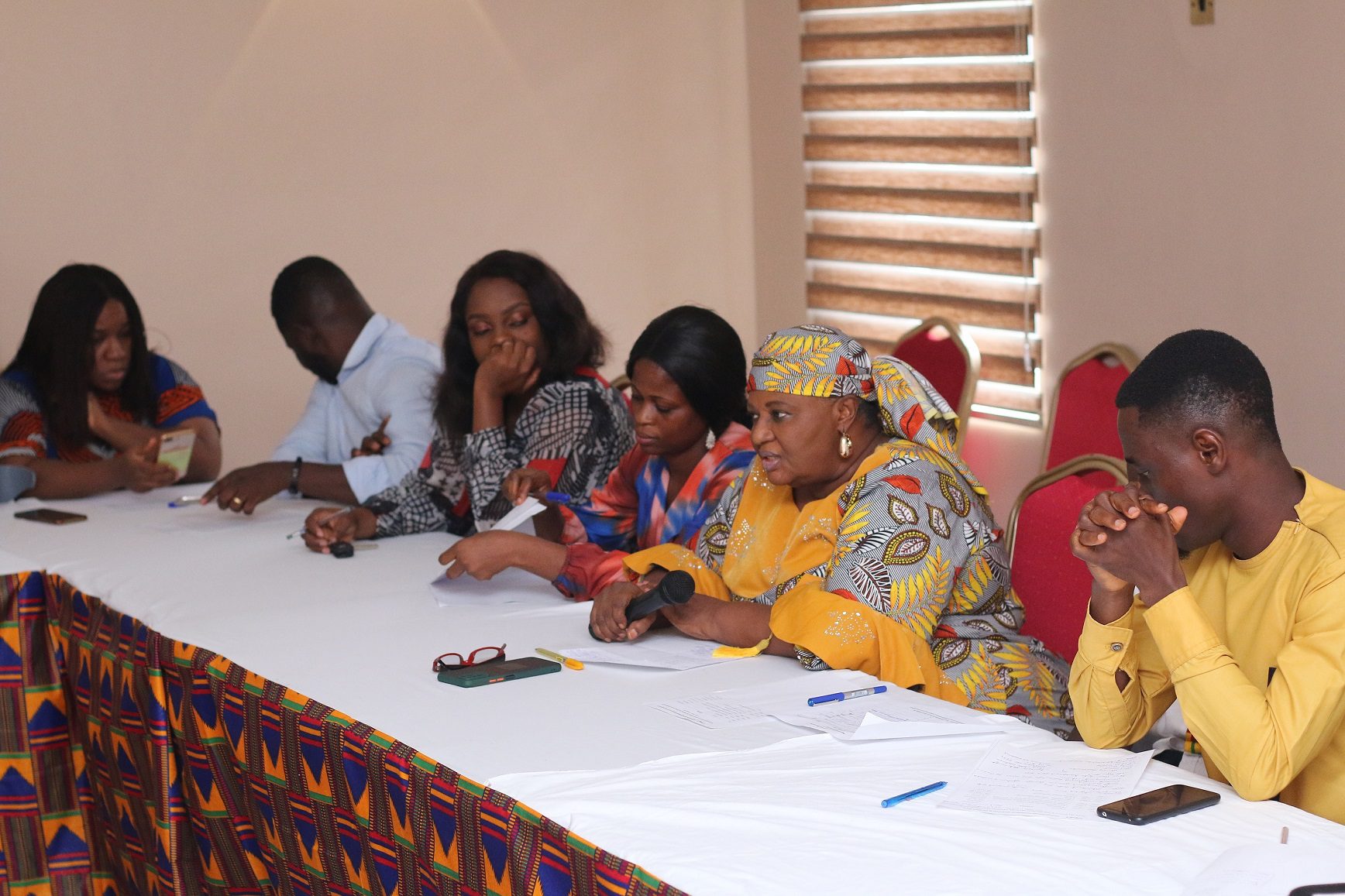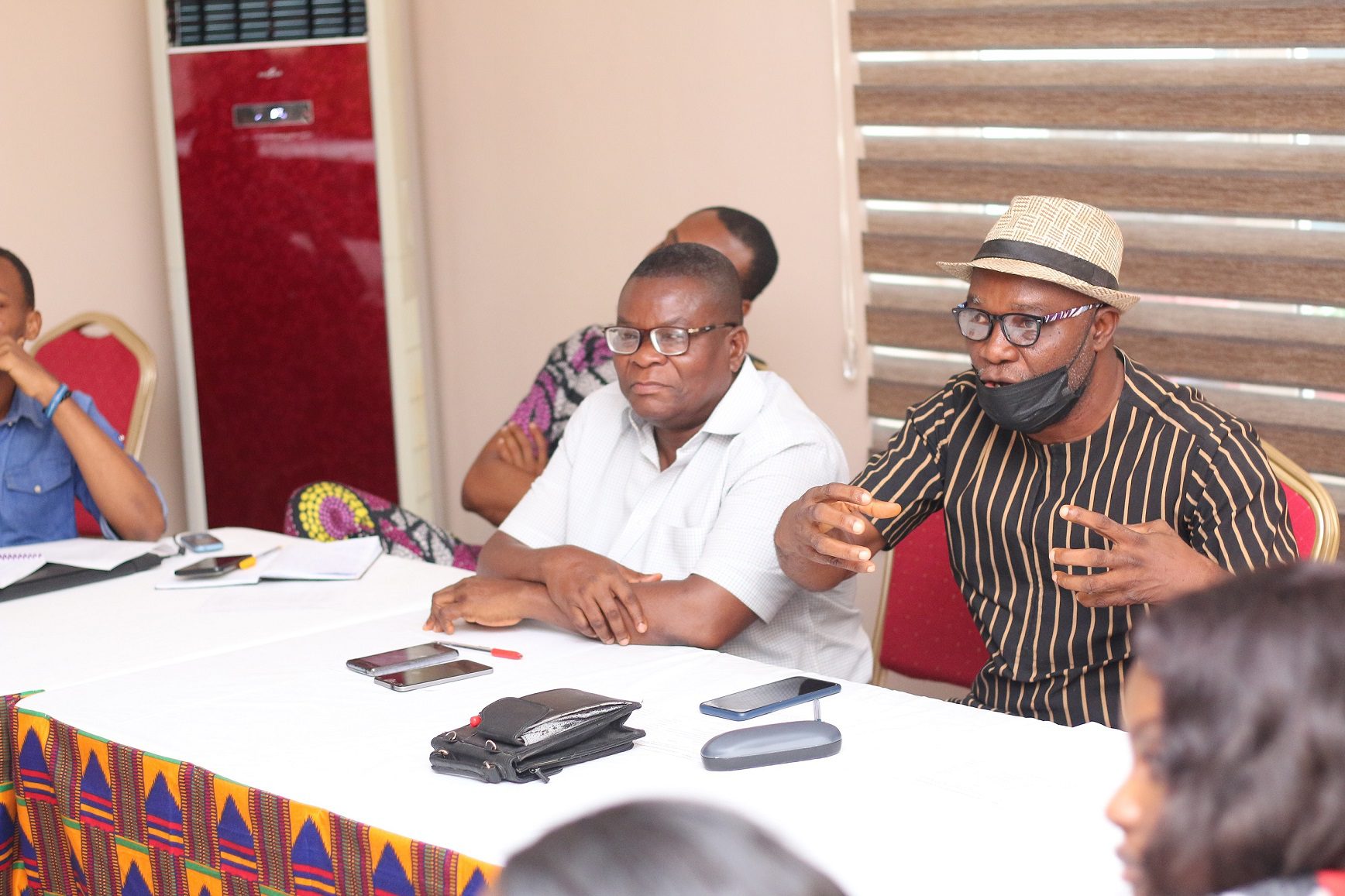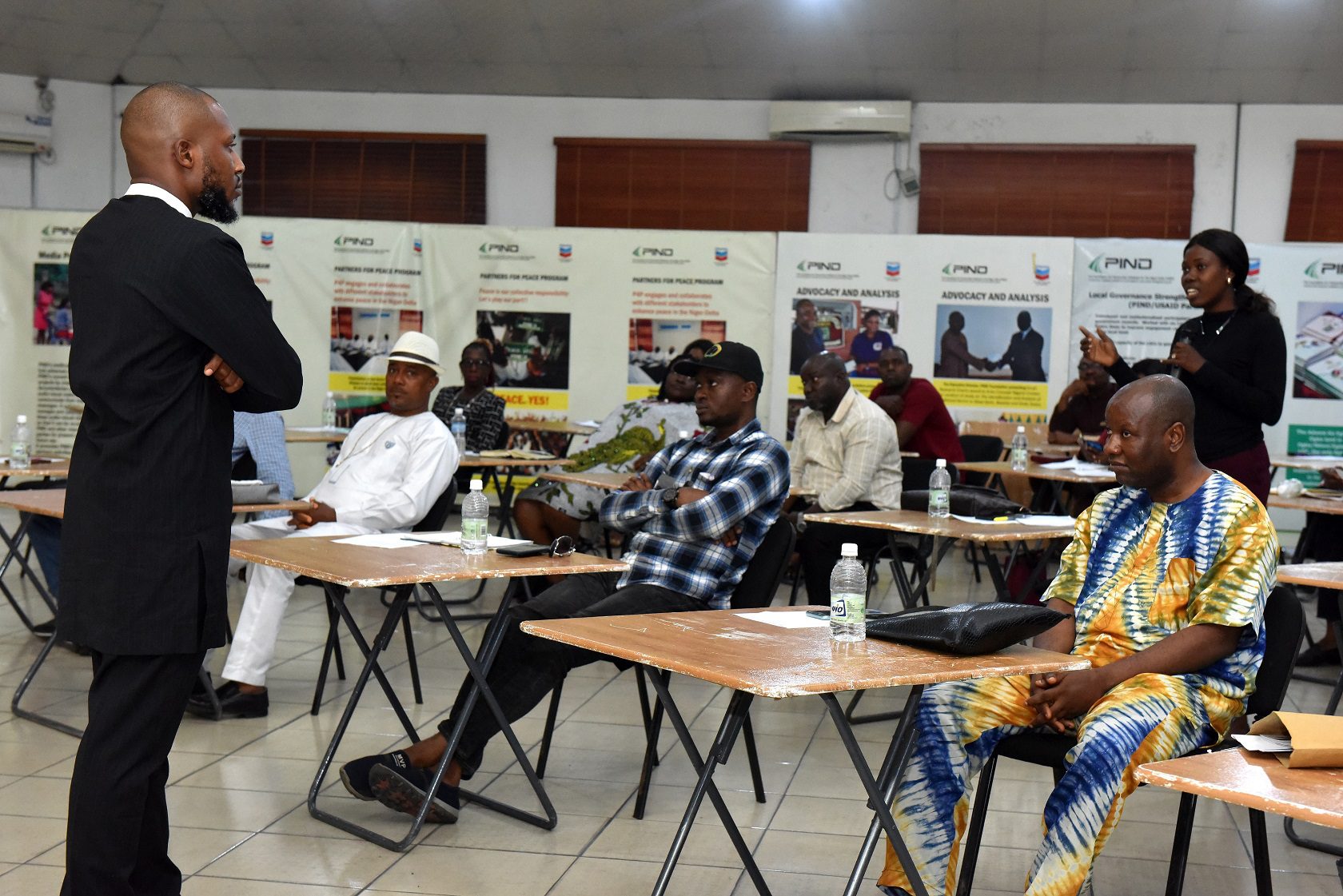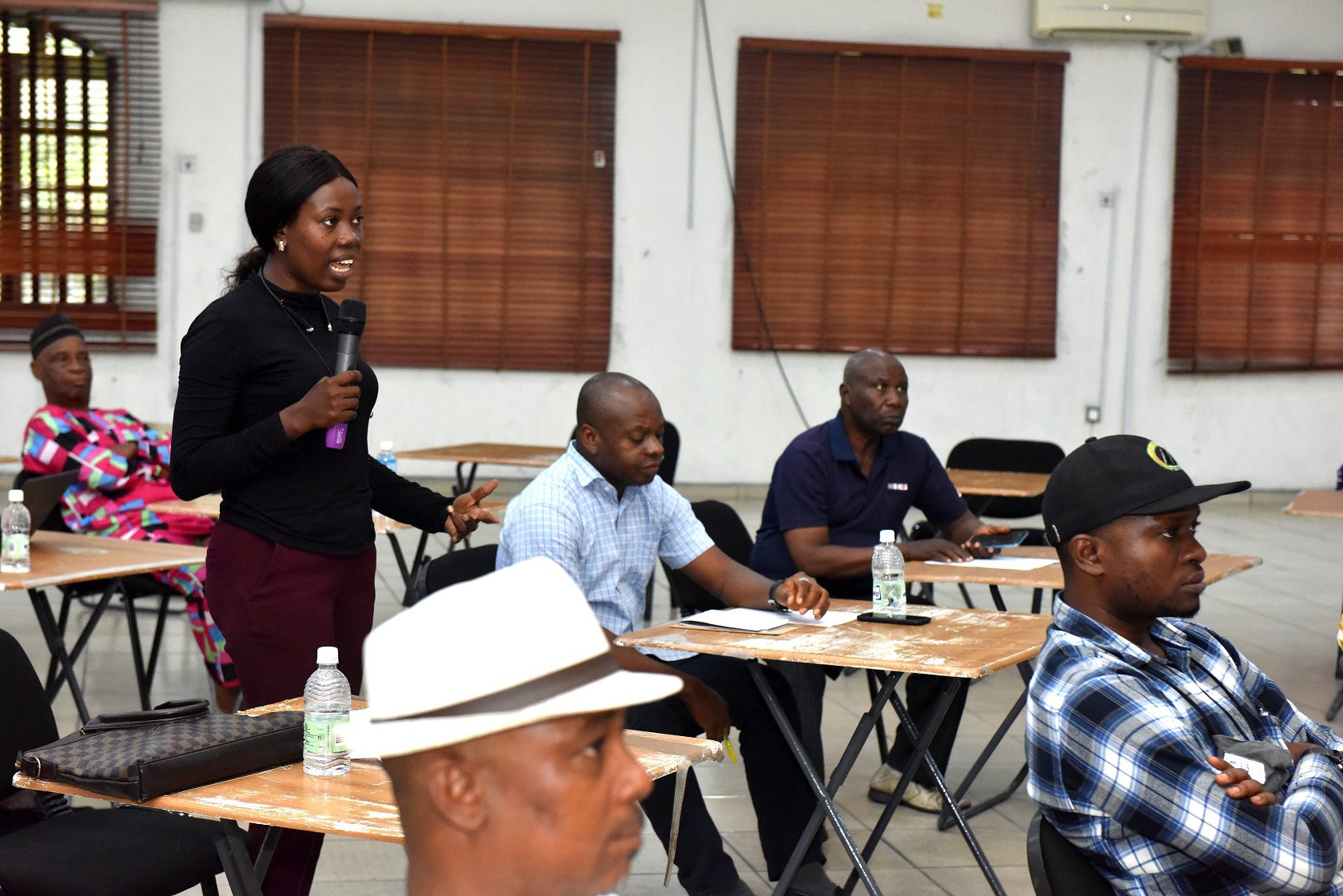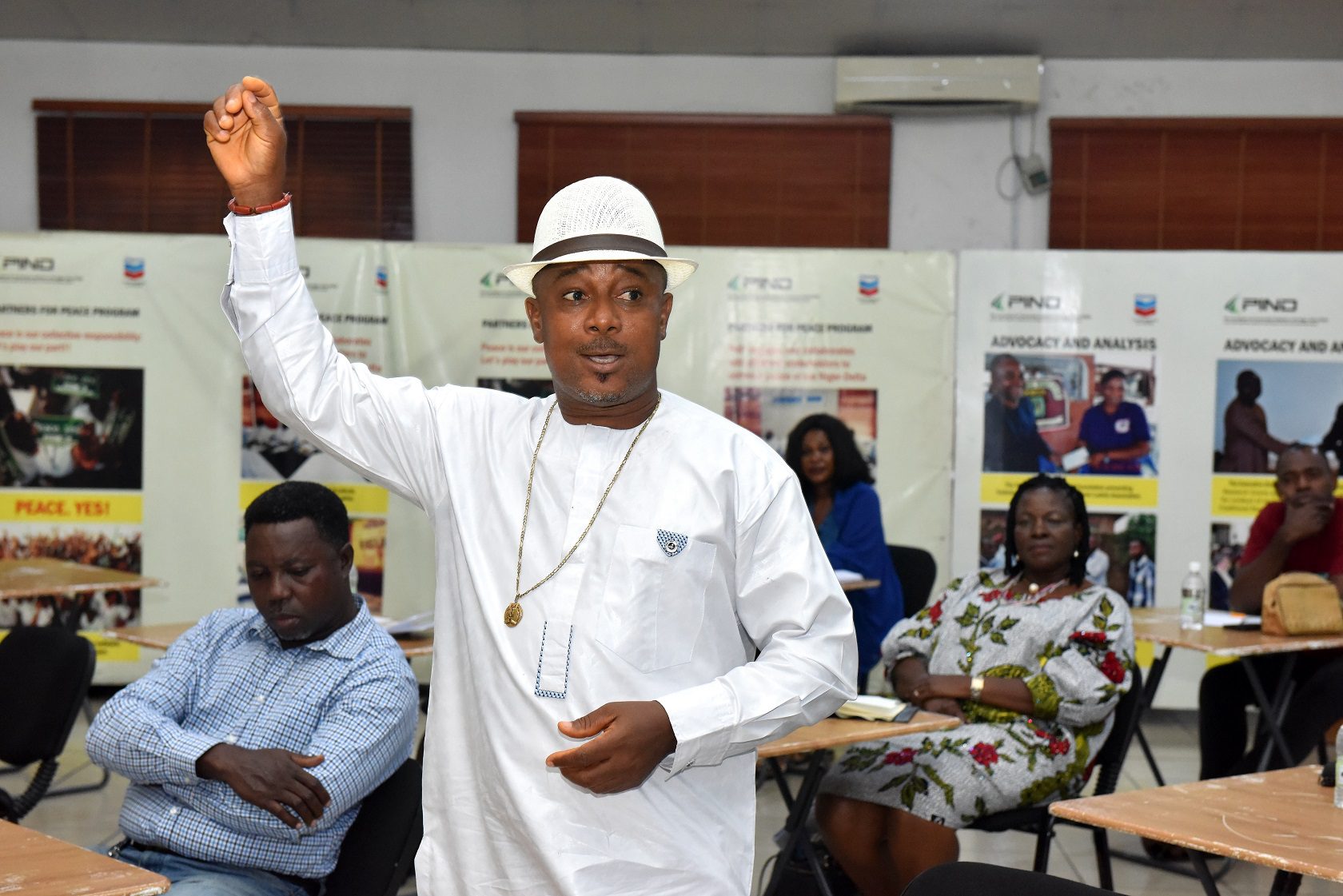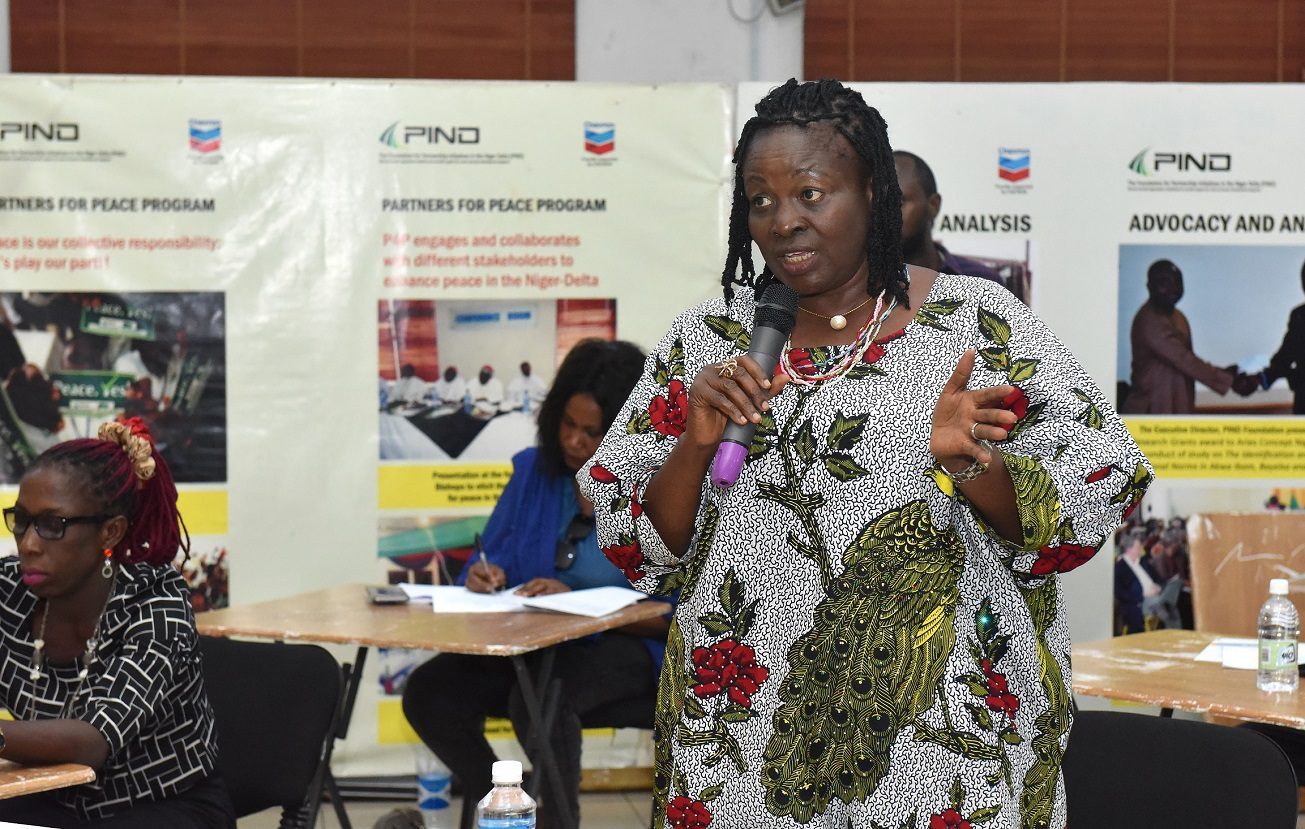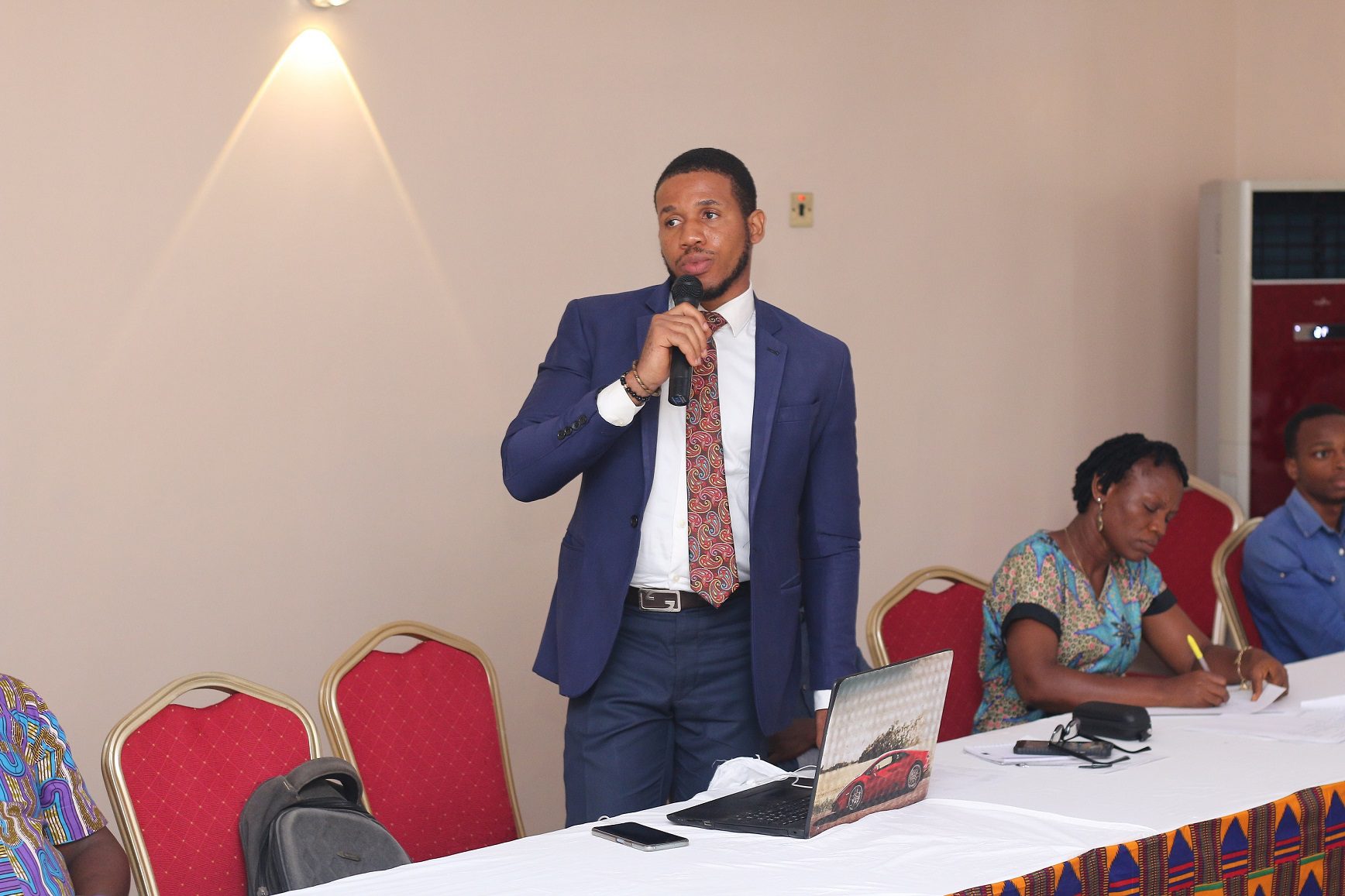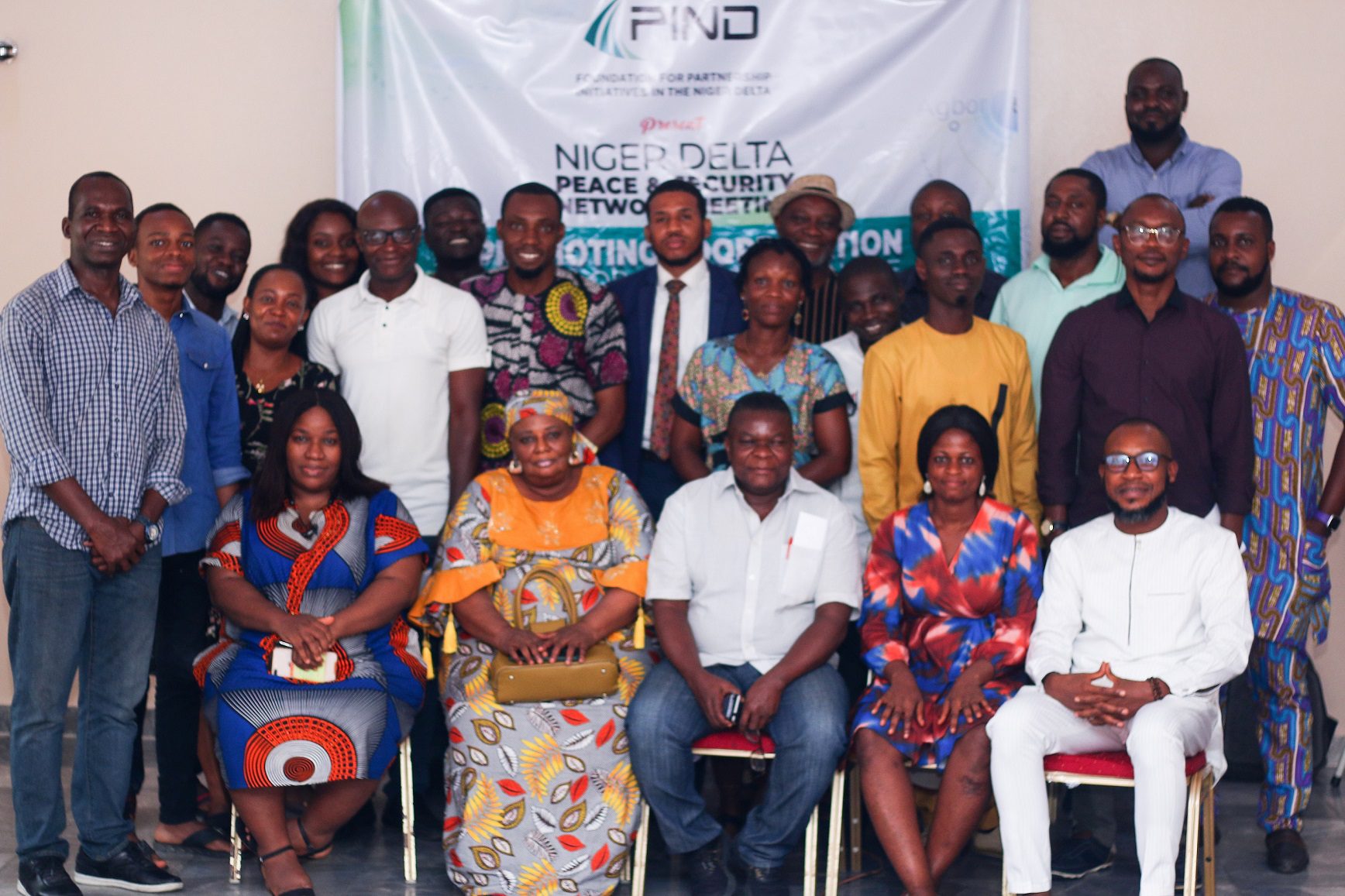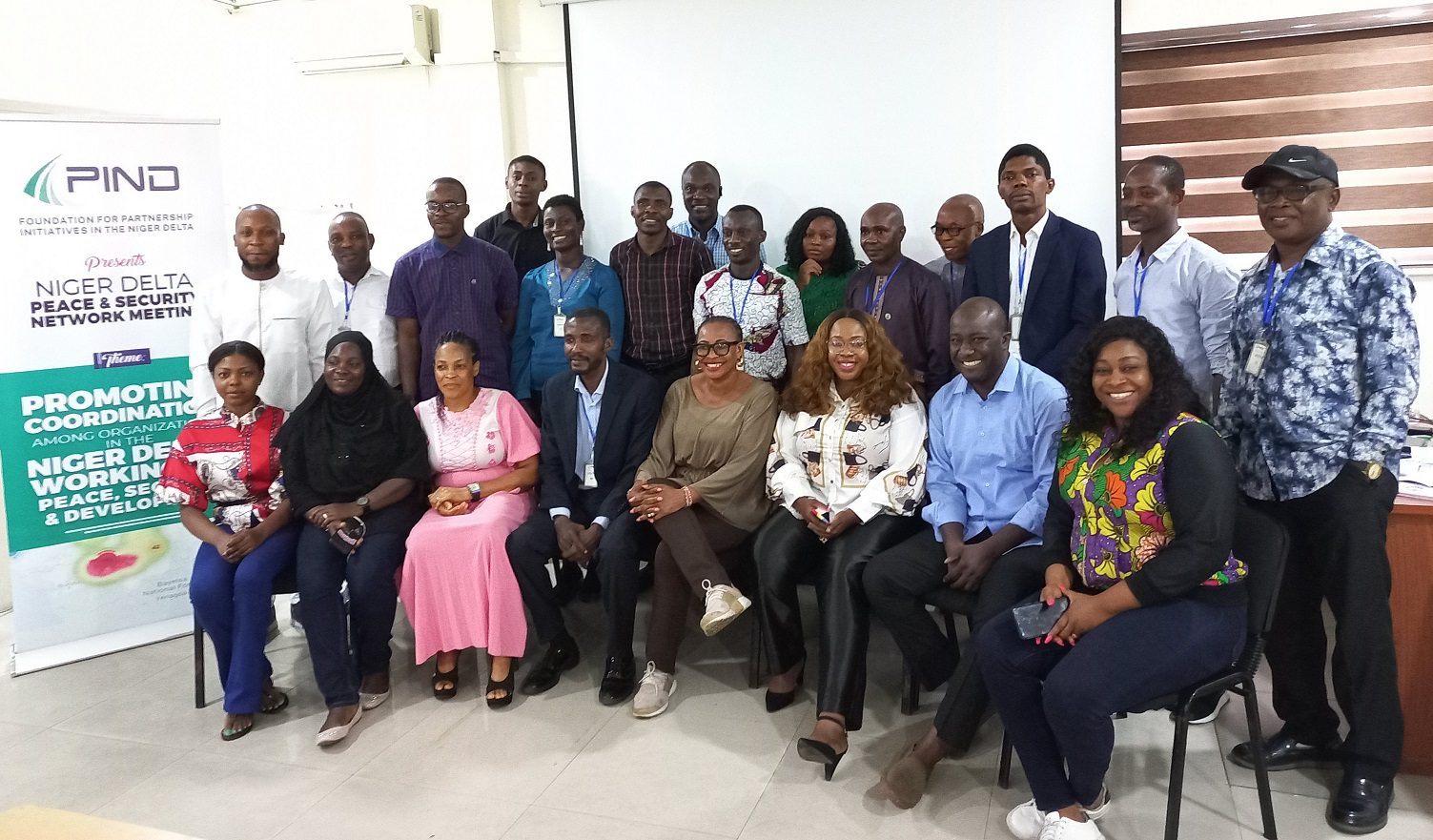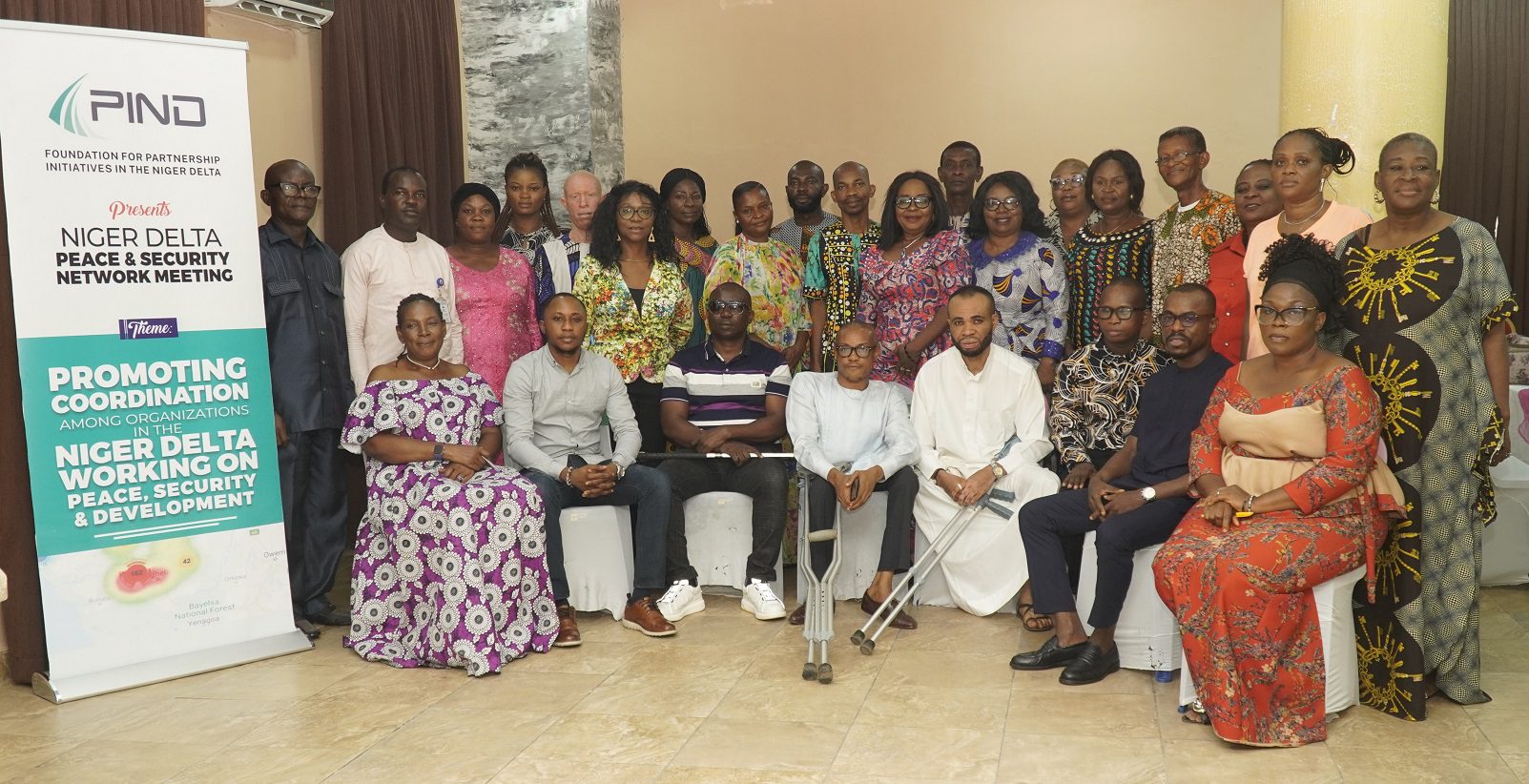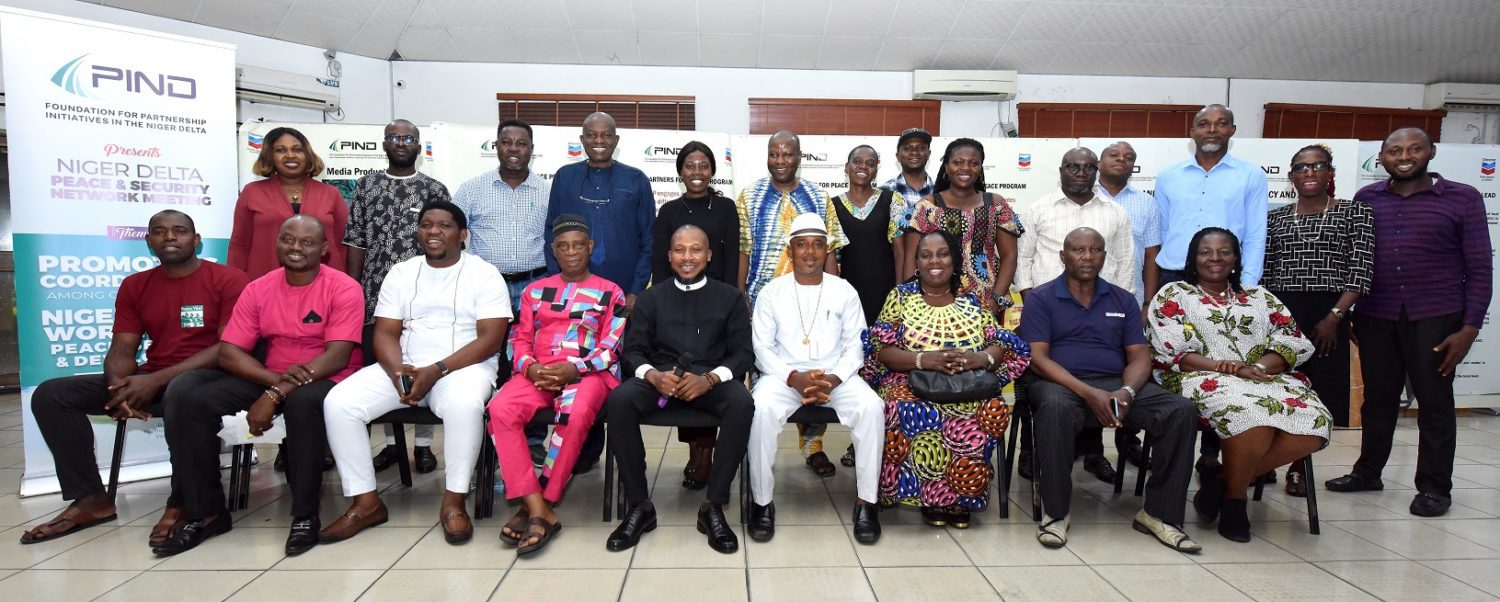
Continuous and ongoing efforts are to reduce conflicts and violence in the Niger Delta region. The government, Civil Society Organizations (CSOs), and well-meaning individuals consciously and intuitively contribute to peacebuilding efforts. Notwithstanding these, violent conflicts prevail in the region, increasing the attention and actions to improving peace and security through legislation, panels of inquiries, special committees, programs, and interventions.
Based on the preceding, there is a need to enhance the effectiveness and coordination of interventions designed to prevent the resumption of or reduce violent conflict in the Niger Delta. These activities may address the underlying drivers, neutralize potential triggers of violence, create a societal expectation for peaceful conflict resolution or stabilize society politically and socio-economically amid crises.
Hence, the Partnership Initiatives in the Niger Delta (PIND) has coordinated the Niger Delta Peace and Security Network (NDPSN), which comprises various actors involved in strengthening the peace, security, and development of the Niger Delta. PIND facilitated four NDPSN meetings in Abia, Akwa Ibom, Delta, and Rivers States, bringing together 99 stakeholders primarily comprised of CSOs, and traditional and religious leaders. The meetings took place in Umuahia, Uyo, Warri, and Port Harcourt on April 1, April 23, May 12, and May 26, 2022, respectively. Based on data and research, PIND’s Integrated Peace and Development Unit (IPDU) briefed participants on the emerging and prevailing trends of conflicts and insecurity in their respective states. The engagements focused on identifying state conflict issues with workable and sustainable solutions to manage them.
The stakeholders made the following recommendations in the four states to curb the prevalence of violence in the Niger Delta:
- Civil Society Organizations should collaborate more and improve their coordination. They should also be sincere with their activities and programs and be ready to handle conflict-related issues without bias so as not to do more harm.
- Organizations should set up platforms for social good and recognition. A typical example is PIND’s Peace Champions program which aims to build the capacity of youths in peacebuilding and improve peace and development in the Niger Delta.
- There should be targeted interventions to address the prevalence of Gender-Based Violence in the region. Men, too, should be considered potential victims.
- Local vigilantes and security apparatus with enthusiastic leadership should be encouraged to tackle conflict issues from bottom to top.
- Stakeholders should adopt innovations and technology for peacebuilding interventions; this is necessary and will be timely as many conflicts emanate from technology-based platforms these days.
- Since improved livelihoods would reduce conflicts, economic development programs should go hand in hand with peacebuilding interventions.
- Individuals and organizations should gain further understanding of Nigeria’s National Action Plan on Youth Peace and Security. The document adopts the United Nations Security Council Resolution 2250 launched by the Federal Ministry of Youth and Sports Development. It should guide the design and implementation of programs and interventions for a more significant impact.
- CSOs should not centralize their activities in the urban areas alone. They should expand their scope to the suburbs and rural areas where conflicts are prevalent.
- Leaders should be more sincere, accountable, and dedicated to their duties to serve. Security agencies should also build more trust in the populace through their approach and actions.
- Addressing children without guardians living and straying in the streets would reduce their crimes due to their deprivations.
Given the forthcoming elections in Nigeria, the stakeholders in the four states suggested the following:
- Through street advocacy campaigns, the youth should be encouraged to engage in the electioneering process.
- The public, especially youth, should be sensitized through awareness programs on desisting from election violence. CSOs can collaborate with the National Orientation Agency (NOA).
- Community and religious leaders, as well as faith-based organizations, should engage in civic activities as it relates to elections. They can reach out to the public through town hall meetings.
- Political leaders should take part in peacebuilding activities. There must be conscious efforts to reach out to political leaders who have the power to influence the proceedings by paying them advocacy visits or hosting them at town hall meetings.
- An improved understanding of Nigeria’s new electoral laws (2022 Electoral Act Amendment Bill) by individuals, organizations and political parties will guide their activities, interventions, decisions, and reactions.
- Stakeholders should take advantage of existing conflict early warning and early response systems to monitor election-related conflicts, violence, and its triggers and support conflict prevention, mitigation and resolution.
- Stakeholders should communicate in Pidgin English and our indigenous languages to foster a better understanding of peace messages during the election period; this will improve the assimilation of the message and its context.
Coordination and cooperation among stakeholders are essential to operationalizing the recommendations above. The efforts must also be innovative, inclusive, and continuous because conflicts are inevitable in society and can metamorphose into new dimensions due to myriads of drivers in the Niger Delta.
